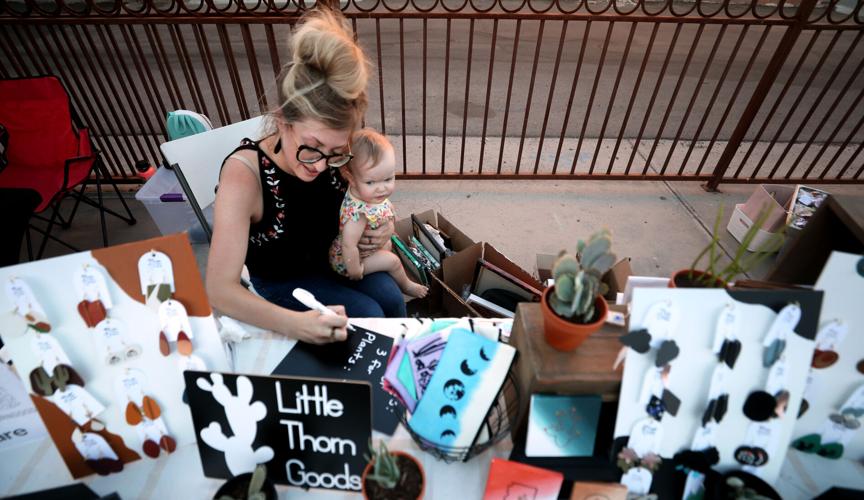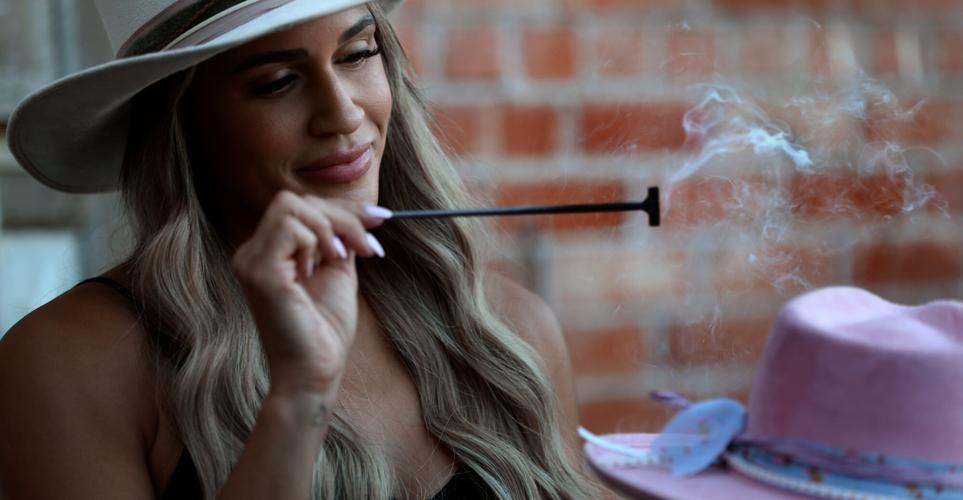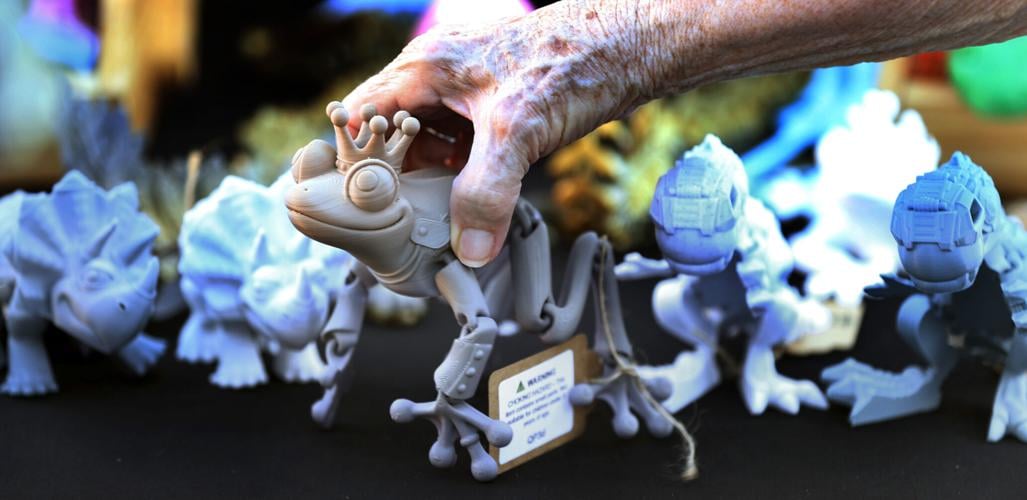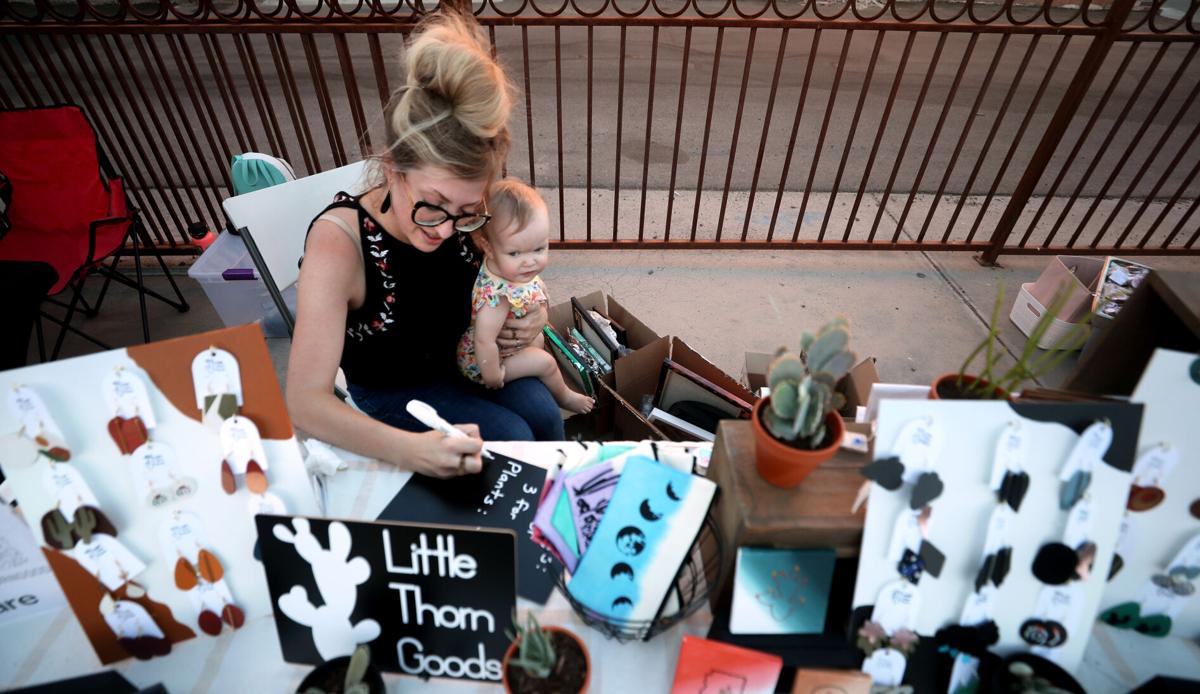When vendor applications for the biannual Made In Tucson market went up last spring, hundreds upon hundreds of makers raced to apply.
"It's amazing. We couldn't believe it," said Shannon Riggs, who is co-owner of Pop Cycle and the community outreach coordinator for the Historic Fourth Avenue Coalition, which organizes Made In Tucson.
"We've had Pop Cycle for 15 years and we know about the people we have in the store and our circle of people, but we were blown away by how many people were applying for Made In Tucson. And it's all really quality work. We're jurying and looking at the stuff and we're like, 'That's in Tucson? No, that's not Tucson, they're trying to sneak in!' but no, the address is right there."
Made In Tucson started as a way to support local artists, yes, but also as a way to support Fourth Avenue — a way for the historic street to remain (and become even more) colorful and creative. Vendor fees from Made In Tucson, which takes place adjacent to Fourth Avenue along Seventh Street, go back into the coalition for revitalization projects like murals and now, a maker space to house workshops, markets and other events.
When Made In Tucson debuted five years ago, organizers didn't think it would turn into anything more than a local craft festival. After years of using an empty building to house Made In Tucson materials, the coalition decided to officially lease the space at 311 E. Seventh St., using mostly money made from past markets.
For now, it's being dubbed the Coalition Space.
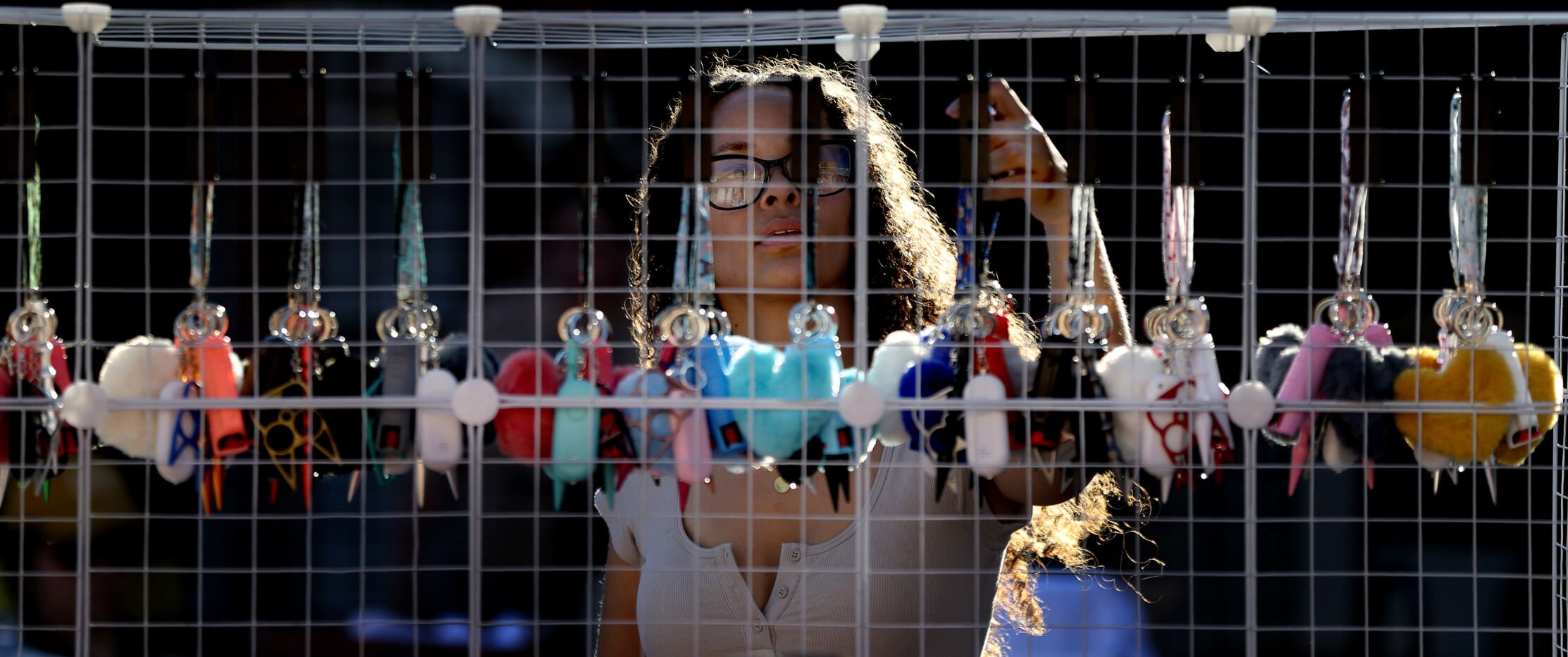
Tina Newton hangs up her merchandise for her Safety Babes Keychains at the Fourth Avenue Flea. Some 40 vendors, bakers and crafters had booths both inside and outside for the evening at Coalition Space.
"We really just love the building, and we love it in its current form just as an empty building," Riggs says. "The owner, Kimberlee Turk, has been so generous to let us use it and keep our stuff there."
"Finally, we were like, we can't let someone else have (this space)," she says.
Plans have already been in full swing. In May, the coalition housed an art swap where community members were able to trade craft supplies with other makers. Last weekend, there was a gardening-themed swap for plant lovers.
"We're coming up with themed swaps every month, so it's a free event. No one makes money and no one has to spend money," Riggs says. "It's just a cool way for people to take advantage of the space and hang out."
Beyond the swaps, the Coalition Space most recently held its first flea, a night market featuring 40 vendors: bakers, potters, photographers and other makers. It's a concept the coalition hopes to host monthly, taking a break in fall and winter for the holidays and Made In Tucson (which featured nearly 300 vendors last spring).
Mobile art workshop Sunny Studio met with coalition organizers at an open house in May, and is now using the Seventh Street space to host summer art classes. "Summer art classes for kids was one of the things on our mind and it was very fortuitous that she was at the open house," Riggs says.
Come July 9, photographer Julius Schlosburg will teach a skill-share class surrounding the fundamentals of photography. The class is priced on a sliding scale, and Schlosburg will get to keep all of the money.
"We want to do more of that, on a sliding scale, where the money goes to the person doing the workshop," Riggs says.

Lexi Schoen brands a figure onto a hat, customizing the purchase for a buyer at the Harper Honey hat bar at the Fourth Avenue Flea, held at the Coalition Space.
On July 29, makers Within Skin and The Serene Essentials are hosting an event focusing on wellness with yoga, a sound bath and vegan food.
And you may have visited the mercados organized by local group Las Mujeres Verdes — maybe you've picked up a candle or a vegan tamale while you're there. In August, the group is moving its bimonthly markets to the Coalition Space.
Coalition members have even been in talks with The Loft Cinema to host an outdoor movie in future months, and some high schoolers have asked about hosting game nights in the space.
"Really, we want it to be a community center and place where people can do workshops and do classes and have game nights. Any kind of ideas the community can come up with, we're willing to work with them," Riggs says.

A customer gets a closer look at one of the eco-friendly printed pieces on display for Quinn Print 3D at the Fourth Avenue Flea.
"I went to the U of A from '88-'92 when Fourth Avenue had Piney Hollow and it was funky. Not that (Fourth Avenue) doesn't have a funky vibe anymore," Riggs says, mentioning the vibrant buildings that house Hippie Gypsy and Tucson Thrift Shop. "But things have changed and I think Fourth Avenue needs to be a hub for the community."
When she walks down arts districts like Roosevelt Row in Phoenix or the RiNo District in Denver, she thinks about Fourth Avenue.
"Fourth Avenue needs to be like this — when you drive by and you're like, everything is so rad," she says. "There's no reason it can't be. As business owners, and just people who have been frequenting there — for me, since I was 18 years old — it's something we want to make sure we can make as great as it can be and imagine it to be."
Follow the Historic Fourth Avenue Coalition on Instagram to keep up with future events.


